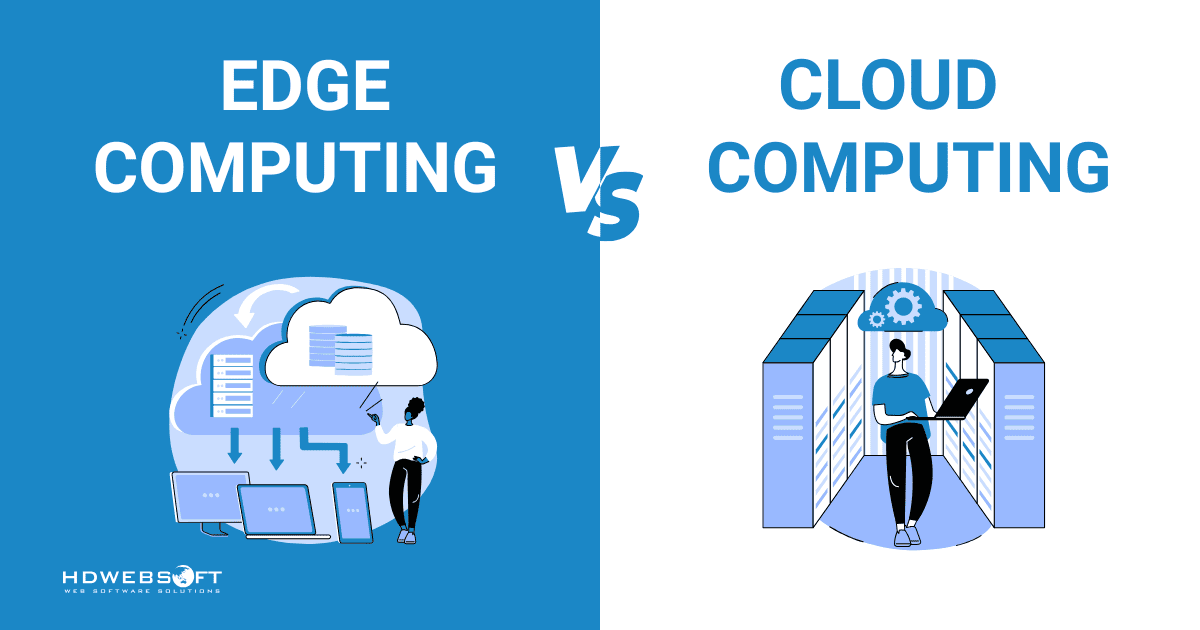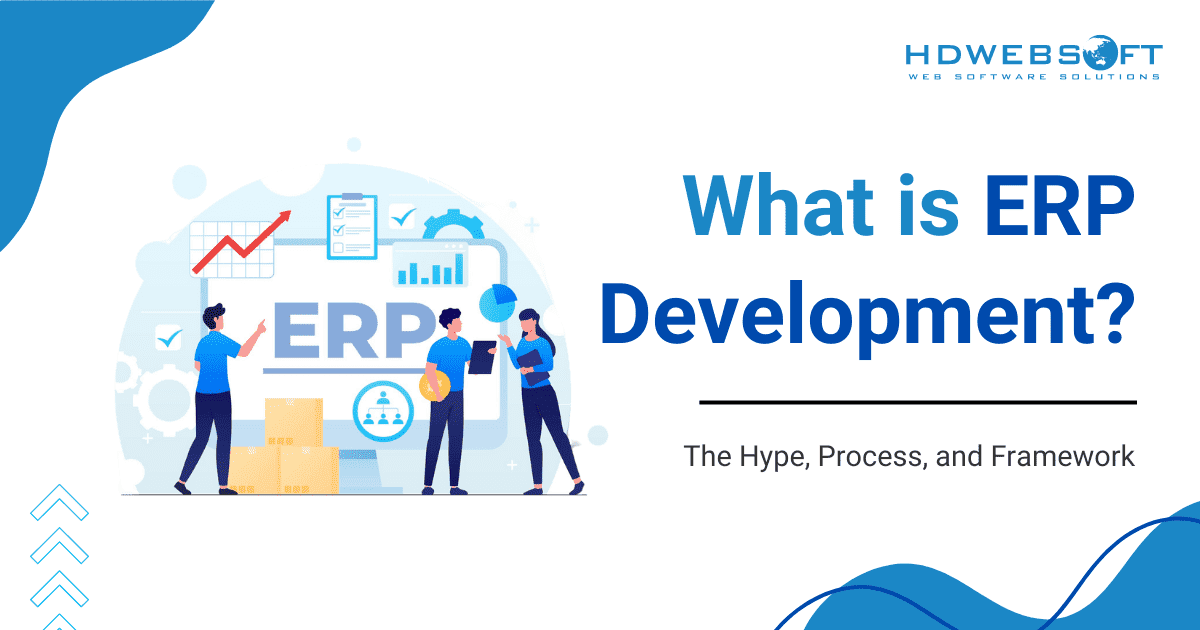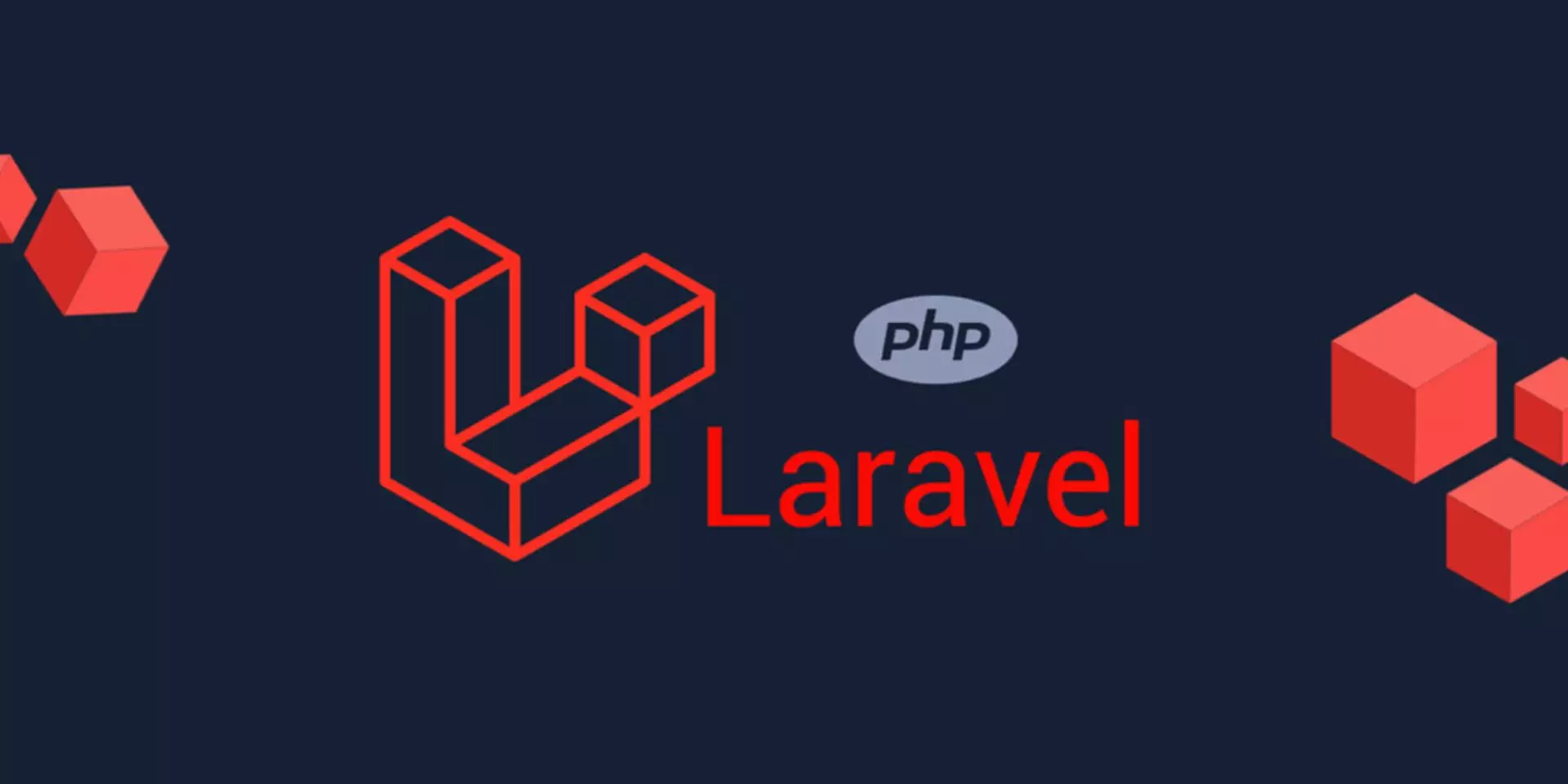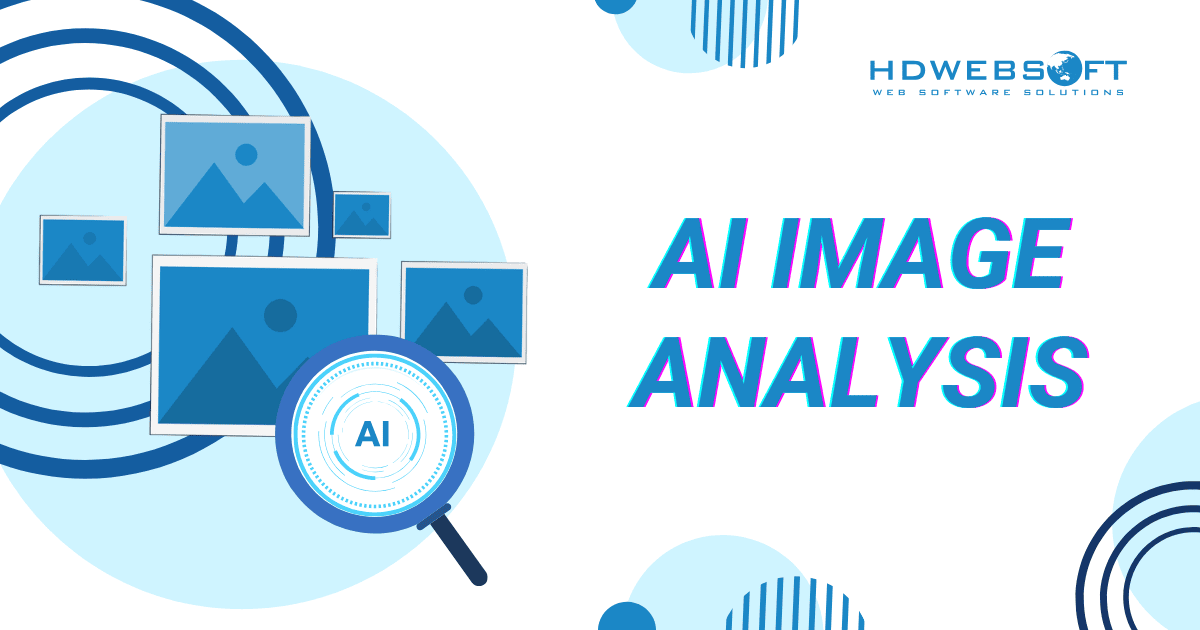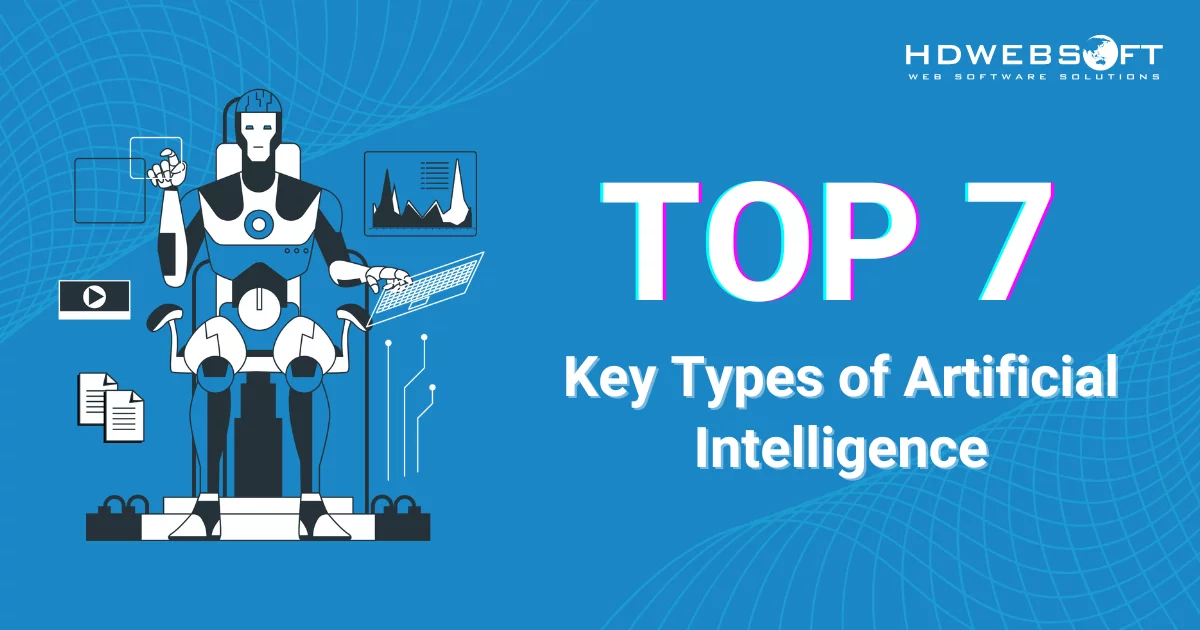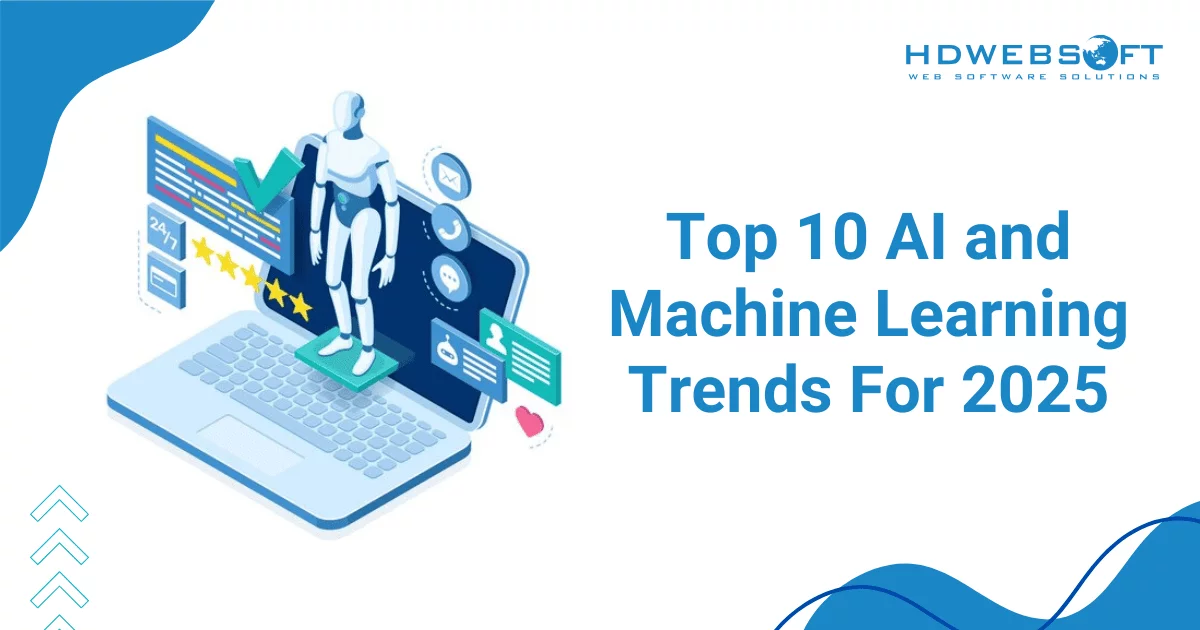
Top 10 AI and Machine Learning Trends for 2025
AI and machine learning trends have already been transforming business and society. The successful applications have been showcasing the rapid advancements and achievements in algorithmic evolution. For instance, Google’s BERT transformer neural network is a new algorithm that will revolutionize natural language processing.
In this blog, we will go through the status quo of the trends and why HDWEBSOFT is a suitable choice for businesses pursuing these trends. Along with that, we’ll explore the answer to the AI and machine learning trends in 2024 that you should be looking to capitalize on.
The Status Quo of AI and Machine Learning Market
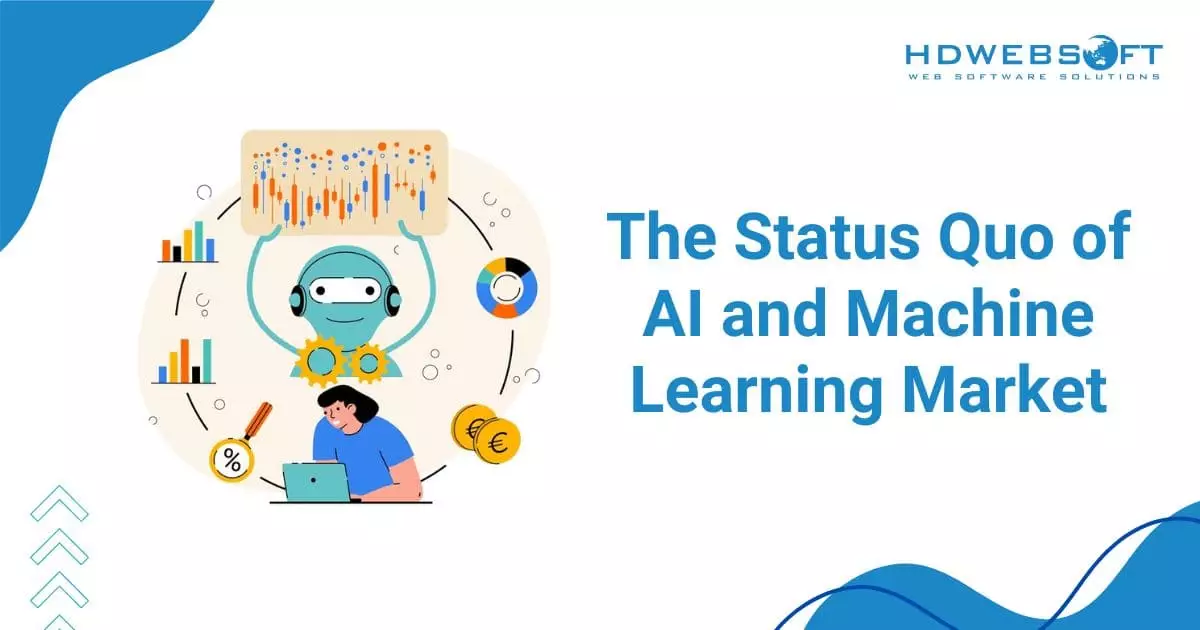
Worth our attention, there has been an increase in the number of new tools invented to automate ML directions and expedite development. In addition, Artificial Intelligence is moving into new domains. The process includes conceptual design, smaller devices, and multimodal applications, expanding its influence in many industries.
With that in mind, the market for AI and ML continues to experience robust growth. According to a report, the global AI market is expected to reach $3,680.47 billion by 2034. This rapid growth is largely fueled by advancements in machine learning tools and the need for automation across industries.
Specifically, machine learning has seen significant investment as organizations look to integrate advanced ML technologies into business operations. As a matter of fact, 56% of companies are implementing AI to enhance and streamline their business operations. This statistic has underlined the technology’s increasing role in enhancing productivity.
In short, the demand for skilled professionals in AI and machine learning trends continues to grow. Companies are increasingly recognizing the value of in-house expertise in managing, implementing, and scaling AI solutions effectively.
10 AI and Machine Learning Trends for 2025
As we approach 2025, AI and machine learning trends continue to shape how industries operate, interact with customers, and make data-driven decisions. Here’s a look at ten key trends that are expected to dominate the AI and ML landscape in 2025.
Multimodal AI
Multimodal AI, which integrates and processes information from multiple data sources like text, images, and audio, will grow significantly. By 2025, the technology will allow systems to understand and respond to complex inputs more naturally. Ultimately, it will create a seamless experience for users.
For example, customer support chatbots will soon be able to handle both text and images. In this case, a customer could upload a picture of a damaged product, and the chatbot would respond more quickly and accurately. Similarly, this approach could be widely applied in fields like healthcare. Interpreting various data types, such as medical images and patient records, will lead to more comprehensive insights and improved diagnostics.
Explainable AI (XAI)
With the increased reliance on AI for critical business, XAI will become an essential part of AI and machine learning trends. Explainable AI will play a critical role in helping businesses understand, interpret, and trust the outputs of their AI systems. Most importantly, this trend is driven by the need for transparency, especially in sectors where high-stakes decisions are made.
For instance, XAI could explain why certain credit applications are approved or denied, promoting fairness and accountability. By making AI models more interpretable, organizations will comply with regulatory standards and improve user trust in automated systems.
Ethical AI
As AI’s influence expands, the importance of ethical artificial intelligence will only intensify. Businesses will be under growing pressure to adopt ethical AI practices to ensure their systems are fair, unbiased, and transparent.
For the obvious reason, AI ethics will become a core component of AI governance. Consequently, companies will actively work to eliminate biases from their algorithms. They will also place a strong emphasis on data privacy and accountability.
This AI and machine learning trend will lead to the creation of AI ethics teams in organizations. They will be able to oversee the responsible development and deployment of the artificial intelligence solution.
Additionally, consumers are increasingly aware of AI ethics. Therefore, companies that emphasize ethical AI will stand out as trusted brands in a competitive market.
Edge AI
Edge AI enables data processing close to its source rather than relying on cloud computing alone. This technology is poised for substantial growth by 2025. It’ll allow faster processing and real-time decision-making on devices such as smartphones, IoT devices, and autonomous vehicles.
In sectors like manufacturing and healthcare, Edge AI will enable quick responses to critical data inputs. It will reduce latency and enhance privacy since data doesn’t need to be transmitted to a central server.
For instance, wearable health devices will be able to analyze data on-site, alerting users to health issues in real-time. As 5G networks expand, the infrastructure for Edge AI will become even more robust, opening up new possibilities across industries.
Quantum Computing
Set to revolutionize AI and machine learning trends, quantum computing offers computational power far beyond what traditional computers can achieve. As a result, this technology will make it possible to process vast datasets at unprecedented speeds. Furthermore, it will enable breakthroughs in fields like material science, drug discovery, and logistics optimization.
In machine learning, quantum algorithms could significantly enhance model training, accelerating the development of complex models that require large-scale computation. As quantum hardware becomes more accessible, businesses that adopt quantum-powered AI solutions will gain a competitive edge by solving problems faster and more efficiently.
Autonomous Systems and Robotics
Autonomous systems, including robots and drones, will continue to evolve, performing tasks that previously required human intervention. By 2025, we’ll see greater deployment of autonomous systems in logistics, healthcare, and manufacturing. Robotics powered by AI and machine learning will take on roles such as warehouse management, patient care, and even surgeries.
For example, in healthcare, robotic assistants will assist surgeons with complex procedures, improving precision and reducing recovery times. As part of AI and machine learning trends, the ongoing development of autonomous systems will streamline operations and reduce human error. Ultimately, it’ll become easier for companies to maintain productivity even in challenging environments.
AI in Cybersecurity
As cyber threats become more sophisticated, AI will play a crucial role in cybersecurity. In line with AI and machine learning trends in cybersecurity, the focus will shift toward proactive threat detection and automated incident response. Machine learning algorithms will identify and mitigate potential threats before they escalate, analyzing patterns to detect anomalies and respond to zero-day attacks.

The adoption of Cybersecurity AI will rise as one of the AI and machine learning trends for 2025.
Moreover, AI-powered cybersecurity systems will provide real-time alerts, allowing businesses to react swiftly to data breaches and prevent financial losses. AI’s ability to analyze vast amounts of data quickly will help organizations stay one step ahead of cybercriminals, protecting sensitive information and critical infrastructure.
Further reading: AI in Banking: Revolutionalizing Financial Landscape.
Next-Gen Voice Assistants
Voice assistants are becoming increasingly sophisticated, and by 2025, we’ll see next-generation versions that understand context and intent more accurately. These voice assistants, powered by advancements in NLP and deep learning, will be able to hold more human-like, dynamic conversations.
One application of this advancement is the voice chatbot, which will go beyond simple question-and-answer exchanges. It will provide context-aware answers, allowing users to ask follow-up questions without repeating information. This technology will be essential in AI and machine learning trends, enhancing customer service and making voice-enabled shopping smoother. Furthermore, it also assists individuals in managing their daily tasks hands-free.
Autonomous Vehicles
With companies in the transportation and logistics sectors leading the way, autonomous vehicles will continue to make strides. We can expect a significant increase in the adoption of autonomous vehicles, both for commercial and personal use.
In fact, the third-generation robot has now entered manufacturing. In 2025, 2,000 new units are scheduled for deployment on the Uber Eats platform across various U.S. markets.
Moreover, AI-powered autonomous vehicles will enhance safety, reduce fuel consumption, and optimize route planning. For instance, self-driving cars will transform the transportation and logistics industry in profound ways. By removing the need for human drivers, these autonomous vehicles promise to make travel safer, reduce traffic congestion, and lower emissions through more efficient route planning.
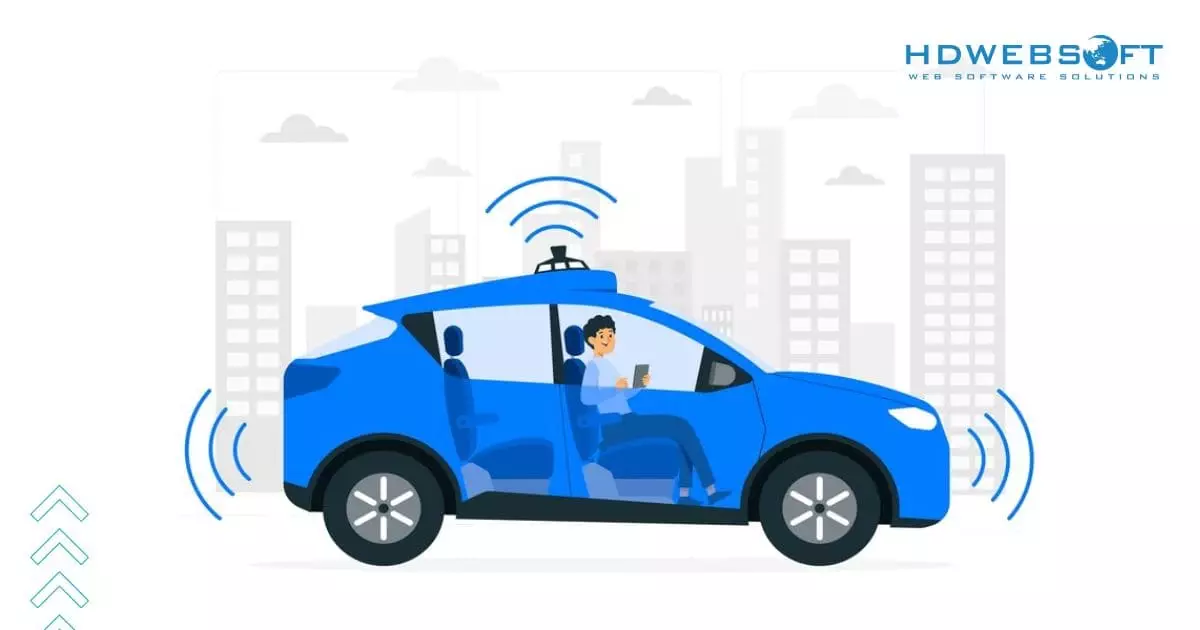
As a matter of fact, this AI and machine learning trend has already been on the streets for a while now.
As regulatory frameworks for autonomous vehicles become established, more companies will invest in this technology. In the long run, this investment aims to improve logistics efficiency and reduce operational costs.
Retrieval-Augmented Generation (RAG)
RAG combines retrieval-based methods with generative AI for systems capable of providing contextually accurate answers. RAG is predicted to be a key player in AI and machine learning trends, especially in customer service and knowledge-based tasks.
For example, RAG can enhance virtual assistants by enabling them to gather information from specific sources to answer complex questions. This method will be especially valuable in fields that require precise information, such as legal services and technical support.
In the year to come, RAG-powered models will provide more informed and relevant responses. With the technology, businesses will improve customer satisfaction and operational efficiency in the long run.
What Businesses Should Prepare for AI and Machine Learning Trends?
As AI and machine learning trends advance, businesses must prepare for the transformation these technologies will bring to every industry. Here are key areas businesses should focus on to ensure they are well-prepared for the future of AI and ML:
Anticipating Skill Set Requirements
AI & ML are reshaping job roles, making it essential for businesses to equip their workforce with relevant skills. To stay competitive, companies should invest in training programs that provide employees with a basic understanding of AI principles. Additionally, these programs should offer advanced skills in data science, machine learning, and AI ethics.
As a matter of fact, upskilling employees ensures they can work effectively alongside AI systems. Overall, it’ll be easier to implement new technologies without disrupting productivity.
Moreover, organizations should consider hiring data scientists, AI engineers, and ML specialists. This is particularly necessary as AI-driven tools and processes become more embedded in daily operations. In addition, this expertise will help decision-makers make informed choices about how to integrate and scale AI solutions effectively.
Investing in the Right Infrastructure
Adopting AI and machine learning trends is about more than just technology. It requires a solid foundation of infrastructure that can support high data processing and storage needs. This infrastructure should include all essential to handle the large datasets and computation demands AI algorithms require.
Businesses should look to cloud solutions that support AI and ML operations, allowing them to expand without major IT overhauls. Furthermore, AI cybersecurity is becoming increasingly critical, as protecting sensitive data is essential in maintaining trust and avoiding potential security risks. A scalable infrastructure ensures that AI adoption is sustainable, setting businesses up for growth as their AI capabilities expand.
Embracing Automation in Operations
AI-driven automation can improve productivity, reduce costs, and streamline workflows across departments. However, integrating automation into daily operations requires careful planning and adaptation of workflows. Businesses should start by identifying areas where AI and machine learning trends can support repetitive tasks. By automating routine work, employees can focus on more strategic activities that require human insight.
In addition, preparing for AI-driven automation means rethinking job roles and workflows. Rather than seeing AI as a replacement for human work, businesses should encourage employees to see it as an enhancement. Training staff to work with AI tools fosters a collaborative culture and helps workers feel valued in a changing landscape.

Adopting new AI and machine learning trends means your business has to prepare for the good change they brings to operations.
Preparing for Potential Partnerships with Vendors
As AI technologies grow more complex, partnering with specialized vendors can offer cutting-edge AI solutions without extensive in-house development. Moreover, collaborating with AI and machine learning vendors provides expertise and resources that can accelerate adoption. As a result, companies can integrate advanced solutions more quickly and cost-effectively.
A word of advice: businesses should consider partnerships with vendors that align with their goals and values. This will make sure that the technology fits seamlessly with their infrastructure and objectives.
Vetting potential vendors for ethical practices, transparency, and a solid track record can also prevent issues down the line. This strategic approach lets businesses stay current with latest AI and machine learning trends while focusing on their core competencies.
Why HDWEBSOFT For Adopting AI and Machine Learning Trends?
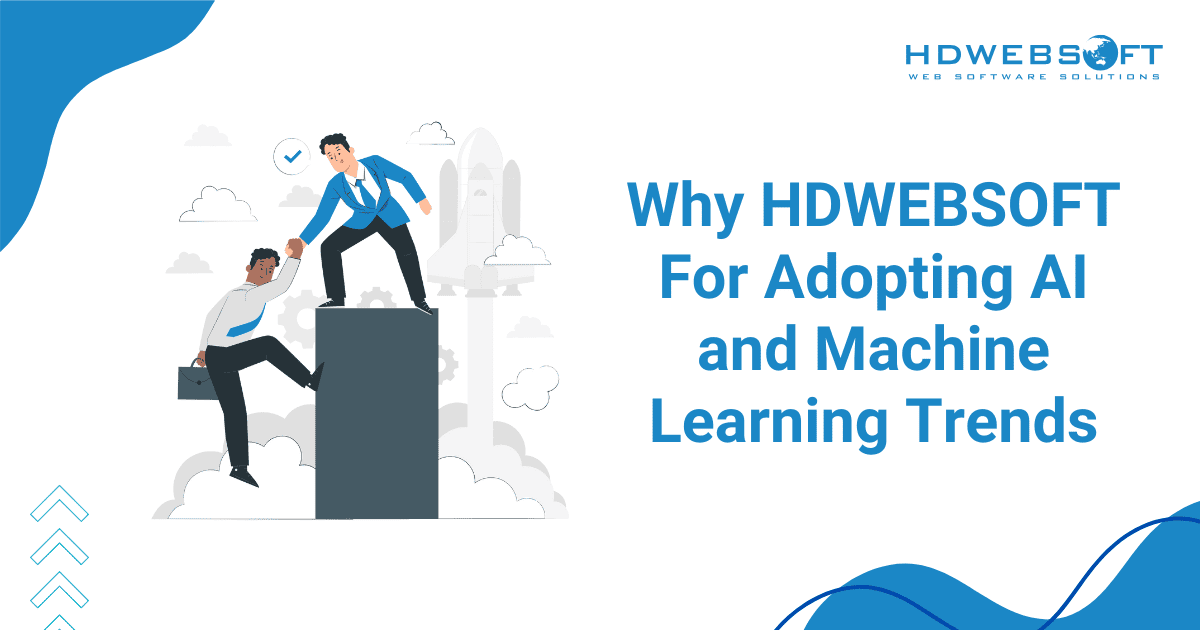
Above are the exciting AI and machine learning trends for 2025, which will profoundly impact our lives. While the first provides correct predictions based on data, artificial intelligence is utilized to develop machines that can independently think. Consequently, selecting the right vendor is pivotal in creating the drive for growth and profits. It also ensures that any potential security risks will be removed. At the same time, core data will be kept confidential at the highest level.
HDWEBSOFT is a top AI development company for all your technology needs, capable of handling any project. We’ve been in the industry for over a decade and have assisted our clients in building and integrating AI technologies. We strive to provide the highest quality at reasonable costs while securing all the data involved.
More information about our engagement models can be found here.




